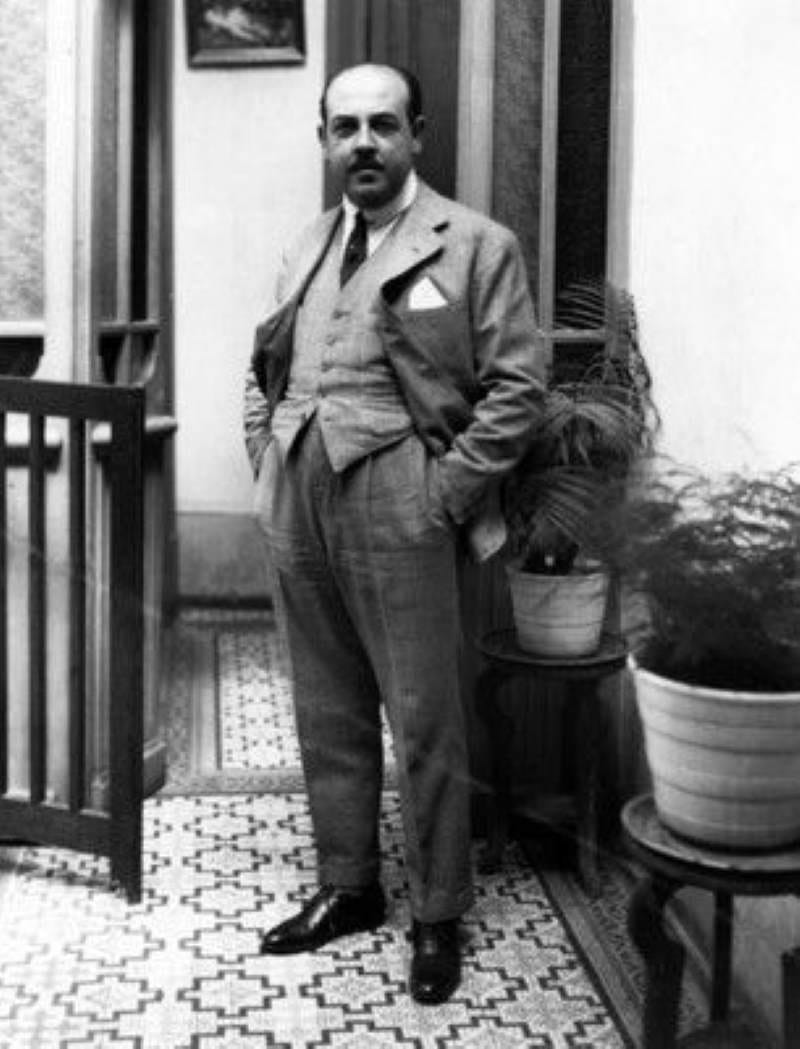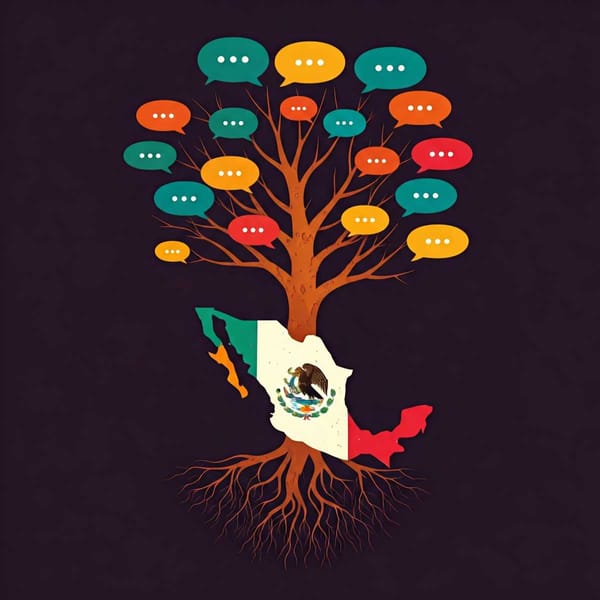Alfonso Reyes's Dazzling Clarity in the Shadow of Death
Alfonso Reyes, literary titan, met his end pen in hand. His final pages, penned under death's gaze, shimmered with clarity. Poet, humanist, “Homer of Cuernavaca,” he left 150+ works, from essays to epic translations.

Just a few hours before the premonitory sign, Alfonso Reyes had written a few pages that pulsed with a strange clarity. The world, under the shadow of mortality, had stripped itself bare, revealing “firm outlines and a dazzling clarity.” Reyes, it seemed, was peering into the abyss, and his words shimmered with an otherworldly light.
Then, on December 27, 1959, the abyss blinked, and Reyes was gone. A myocardial infarction, the fifth in a series, snuffed out the life of this “splendidly gifted viewer of all universalist currents.” Mexico's literary circles reeled, the public mourned, and newspapers across Latin America trumpeted the news.
Reyes, the “lord of the Castilian language,” had left without the Nobel Prize, a distinction that seemed his birthright. Yet, as he often said with a twinkle in his eye, “they call me a humanist, but deep down I am a poet.” And what a poet he was! In the face of death, his verses soared:
Where is the dwelling place where our shadows run together? On earth, in heaven, or in nothingness? Alas! far beyond questions.
His words echoed Villaurrutia's epic song, reaching for something “beyond the night,” “beyond the hands and the eyes,” simply “beyond.” And so, Alfonso Reyes, the Homer of Cuernavaca (a title earned for his masterful translations of the Iliad), was beyond, too.
But his shadow, cast by over 150 books of essays, poems, chronicles, and more, would linger for centuries. From “Visión de Anáhuac” (1917) to “El testimonio de Juan Peña” (1930), Reyes had poured his boundless curiosity and humanist erudition onto the page. His “Marginalias,” those sparkling literary gems scattered across American supplements, were a testament to his wit and wisdom.
A keen observer of the human condition, Reyes fretted about the rise of “machinism” and its threat to the cultural sap. He was a man of his times, deeply affected by the Spanish Civil War and the subsequent exile of many of his compatriots to Mexico. Yet, he remained a tireless collaborator, a friend to Ortega y Gasset, Unamuno, Azorín, and Baroja.
“The intelligence of Alfonso Reyes,” Unamuno once declared, “is a function of his goodness.” And goodness, it was that fueled Reyes' insatiable appetite for knowledge. Even at sixty, he declared himself an “eternal apprentice,” his youthful spirit eternally engaged in “reading, taking notes, and organizing his readings.”
Alfonso Reyes left us pen in hand, his final pages echoing with the clarity of a man who had stared into the abyss and found, not darkness, but a dazzling light. He was, and remains, a giant of Mexican literature, a “Homer of Cuernavaca” whose shadow stretches far beyond the confines of his homeland.
Alfonso Reyes, the Language Alchemist of Mexico
To pin down Alfonso Reyes in a mere article is akin to trying to capture a hummingbird in a butterfly net. He was a man of many facets, a literary polymath who flitted between poetry, essays, diplomacy, and criticism with the effortless grace of a seasoned acrobat.
Think of him as an attic specimen, one of those rare, diaphanous beings whose minds were crafted from classic models. His work, a rich jewel of an anthology, glistens with the air of freedom and universality that only perfect creations possess.
And yet, within this cosmopolitan brilliance, a deep-rooted love for his Mexican homeland pulsed. He called himself “American,” but his vision held an undeniable European tint, forever intertwined with the land of his birth, Monterrey, and the mythical valley of Anahuac, as he so poetically called it.
Fifty years he wandered, a tireless Odysseus navigating the literary currents of Madrid, Rio de Janeiro, Buenos Aires, and Paris, before finally returning to Mexico. This “monstrous” land, sprawling its tentacles across the valley, both exhilarated and exhausted him. Yet, even as fatigue gnawed at his bones, he refused to relinquish his pen, urging the younger generations to take up the torch.
But to truly understand Reyes, we must turn to the words of Xavier Villaurrutia, another literary giant who mourned his passing:
“Alfonso Reyes, man of letters, intelligence open to unlimited perspectives, cannot restrict his field of work. On the other hand, he keeps the horizon clear to look out with pleasure at the total spectacle of the world. We can represent men like him on a promontory next to the crossroads of many roads -the hand serving as a visor to the forehead-embracing and squeezing the greatest possible extension, but with a favorite path, which they sometimes pretend not to see, but which they will choose in case they have to leave their place. Of course, for Alfonso Reyes this path is called Mexico in America, and Spain in Europe.”
This duality, this constant dance between two continents, shaped Reyes's entire being. The arrival of Spanish exiles fleeing their war-torn homeland was both a renewal and a painful realization for him. As he aged, the losses piled up, friends fading like ghosts against the backdrop of time. His Lay of Dead Friends echoes with this poignant sorrow:
“It's not the years that I don't dare, those who bring me pain and damage: They are the friends that time steals from me. Behind the doors he brings his broom, and he drives away Antonio, and Enrique, and Pedro. I'm running out of company than the relics and the portraits. Clear memories, sweet moments! The old wine is already finished and does not breed the new vineyard the flavor it used to.”
Yet, even in the twilight of his years, Reyes's spirit remained fiercely alive. He championed the universal citizenship of America, urging the world to recognize its coming of age. And within his own soul, he cultivated a garden of resilience, as captured in his own poem:
“Without forgetting a point of patience and the resignation of the gardener, every hour I give diligence What does my daily business ask for? Like I never felt the difference of what I lose or what I gain, I sow without laziness or vehemence in the groove drawn by my hand. As the appointed hour arrives, I save the bud, I take care of the graft, the raised stem of the beloved flower, I uproot the weeds from my garden, and when I release the fist of the hoe Without asking, you will consider me dead.”
He never received the coveted Nobel Prize, joining the ranks of melancholy candidates like Don Rafael Altamira. But to compare him to figures like Churchill or Hemingway, men of conflict and drama, is to miss the essence of Reyes. He was a different breed, a Socratic sage, a master of Castilian language whose legacy transcends mere awards.

A Continent Built on Contradictions
Imagine a first-generation American, born in the shadow of conquistadors and steeped in the spice of a new land. In their veins, the conquistador's swagger dances with the Indian's quiet dignity, creating a unique aristocracy misunderstood by both sides. This, Reyes argues, is the fertile ground where the seeds of American independence were sown.
But freedom, like a freshly-churned butter knife, cuts both ways. Independence sparks a civil war between the “Americanists” who champion the new reality and the “Hispanicists” clinging to the old. Sarmiento, a swaggering gaucho with ink-stained fingers, leads the Americanist charge, while Bello, a poet with a quill dipped in nostalgia, defends the Hispanic legacy. It's a duel of pens and pistols, a battle for the soul of a nation still fumbling through its first steps.
Then comes the third act, a waltz between two continents. Europe, with its grand pronouncements of humanity, sways us with its philosophies, while America, with its boots-on-the-ground pragmatism, offers a different kind of step. Caught between these two sirens, the American mind, Reyes suggests, leans towards Europe's universal vision, finding it more in tune with its own diverse complexity.
Reyes isn't about to paint America as a starry-eyed Europhile. He scorns the “ethnic segregation” creeping across the Atlantic, the reduction of human beings to mere curiosities. He celebrates the “lion-hearted lambs” – the missionaries who embraced the Indians, the conquistadors who found love in the arms of their conquered, the soldiers who chose indigenous families over imperial glory. These, he argues, are the true heroes, the ones who bled life into the American soil, not just leeched it from its veins.
Reyes' America is a vibrant, messy, contradictory affair. It's a land where conquistador blood mingles with indigenous wisdom, where European ideals mix with American grit, and where the ink of independence stains the pages of history. It's a land that, in its very contradictions, finds its own unique rhythm unlike any other.
A Mind that Even Death Couldn't Tame (and Probably Tried, but Gave Up)
Alfonso Reyes, the literary titan of Mexico, was a man who stared down mortality with a twinkle in his eye and a quill in his hand. While death may have lurked at the edges, Reyes' plans for the afterlife were as vibrant and ambitious as his prose. El Colegio de México, his research haven, became a fortress against the encroaching shadows, a laboratory where history, literature, and philosophy were distilled into pure intellectual gold.
Imagine, if you will, a sage with a mischievous glint, juggling a dozen projects like juggling lemons – effortless, dazzling, and slightly citrusy. He's translating Homer, one hexameter at a time, while simultaneously wrestling Greek mythology into submission. Memoirs flow from his pen like a silver river, each sentence a polished pebble. And in between, he throws off articles like confetti, showering the literary world with wit and wisdom.
But Reyes wasn't just a wordsmith; he was a titan of erudition. His mind, a vast quarry of knowledge, unearthed gems of insight on everything from Gongora's baroque brilliance to the existential musings of Goethe and Mallarmé. He wove these treasures into essays, poems, and even a cheeky anthology of early French literature – a literary amuse-bouche for the discerning palate.
Is it any wonder then, that when asked about his plans for the face of death, Reyes shrugged and replied, “Why, I have a mountain of them!” He spoke of completing his most important work, the documentary history of his own books, a self-portrait etched in ink and insight. He envisioned a Greek Mythology, a testament to his love for the ancient gods and their stories. And then, he added, “Oh, and some things of a personal nature.”
And who could doubt him? This was Alfonso Reyes, the man who could make a comma sing and a semicolon weep. His words were not mere ink on paper; they were living, breathing entities, dancing on the page with the vibrant energy of their creator.
So, as we stand here, more than a century after his birth, let us not mourn the passing of a giant, but celebrate the legacy he left behind. His books, towering monuments of his intellect, stand as a credo to the human spirit's boundless potential. And in their pages, we hear the echo of the man himself, a mischievous grin playing on his lips, a quill in his hand, forever planning his next literary conquest.
P.S. Don't forget to check out some of Reyes's own works, like Visión de Anáhuac. It's a poem in prose, an aria of history and landscape that will transport you straight to the heart of ancient Mexico. Imagine yourself atop Templo Mayor, overlooking the glistening waters of Lake Texcoco, where Aztec canoes glide along like painted dragonflies. Feel the sun warm your skin as Reyes's words paint vivid pictures of feathered serpents and blood-soaked altars. He'll whisk you through bustling marketplaces brimming with exotic spices and hand-woven fabrics, then lull you into starlit contemplation beneath the obsidian gaze of Popocatépetl. Visión de Anáhuac is a portal, a gateway to a world lost yet eternally present, whispering through the ruins and echoing in the soul of every Mexican.
But his literary garden has even more vibrant blooms to offer. Dive into the philosophical depths of El Discurso Por Yo, where he explores the multifaceted nature of identity. Let his playful wit guide you through Los Oradores del Valle, a satirical gem that skewers the pomposity of politicians with a rapier wit. Or lose yourself in the labyrinthine beauty of Los Sueños, a collection of dreamlike narratives that blur the lines between reality and imagination.
Alfonso Reyes's literary landscape is a boundless playground, a treasure trove overflowing with gems for every curious mind. So, dear reader, don't just admire him from afar, plunge into his pages and lose yourself in the kaleidoscopic wonder he has woven with words. He'll be waiting, arms outstretched, ready to guide you on a journey that will forever alter your perception of the world and the stories it holds.
| Alfonso Reyes | Information |
|---|---|
| Occupations | poet, ambassador, narrator, playwright, and essayist |
| Works | Visión de Anáhuac, Ifigenia cruel, El deslinde, Letras de la Nueva España, Los trabajos y los días, Junta de sombras, Cartilla moral |
| Awards | Alfonso Reyes International Award |
Source: Adolfo Hernández Muñoz, Apuntes en torno a Alfonso Reyes, Correo del Maestro. No. 52, pp. 45-51.




